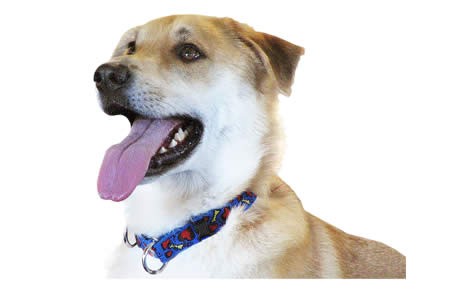Chinook Breed Guide

Breed Group:
Working Dogs
Get 30% off
Join our Newsletter
Sign Up Today
Chinook Background Info and History
Chinooks were created in the United States during the early 1900’s by Arthur Walden. The Chinook was developed to serve as a sled and draft work dog. They are a large sized breed with a thick double coat that serves to keep them warm in cold climates.
They have an innate ability towards pulling and stamina. Chinooks are an extremely rare breed; at the time of AKC recognition in 2013, there were only 813. Despite their rarity, Chinooks hold the distinction of being the state dog of New Hampshire where they were developed.
Chinook Temperament and Personality
Chinooks are an affectionate and playful breed that get along well with people. They are renowned as excellent family dogs and do best when kept indoors with their family. Chinooks are very loyal to their family and display a high degree of patience.
Chinook Training Tips
Chinooks are an intelligent, versatile breed that was developed with trainability in mind. They are eager to please their owners and can learn new commands quickly, making them easy to train. Chinooks can be reserved with strangers, so early training and socialization will bring out the best in this breed.
Chinook Exercise Needs
Chinooks are a hard-working breed that need an outlet for their energy. Expect to spend at least 30 minutes to an hour doing vigorous exercise with your Chinook. Hard exercise should be avoided with Chinook puppies until they are at least 6 months old.
Chinook Lifespan
Chinooks live between 12-15 years.
Chinook Breed Popularity
The Chinook is a very rare breed, so their popularity in comparison to other AKC registered breeds is understandably low. Chinooks are currently the 175th most popular AKC registered breed.
Feeding Requirements of Chinooks
With Chinooks, it is recommended to feed puppies a food source that encourages slow growth. Often this is a large breed formula. This will help them avoid any musculoskeletal issues stemming from development.
Chinooks should be fed a complete and balanced nutritional source that avoids any grain-based fillers. Feeding requirements for adult Chinooks will vary depending on their weight and energy expenditure. Avoid overfeeding as this breed can become overweight, which places extra strain on the body.
Chinook Grooming
Chinooks should be brushed daily. Be sure to brush your dog’s teeth and check his ears on a regular basis as well.
Are Chinooks Good With Kids?
Chinooks are excellent with children. Chinook puppies should be socialized with children from a young age, otherwise they may be shy and reserved. Chinooks should be introduced to new children gently, but they usually exhibit no signs of aggression towards children of any age.
Common Health Problems of Chinooks
Seizures
Seizures in dogs generally are diagnosed as the result of idiopathic epilepsy or symptomatic epilepsy. Idiopathic epilepsy is a condition where there is no underlying medical condition that is causing seizures and is generally thought of as inherited epilepsy.
Symptomatic epilepsy is a condition where seizures are a symptom of an underlying medical condition. Chinooks may suffer either of these, however, they are also susceptible to a little-understood form of seizures known as dyskinesia. This condition is considered a movement disorder, or partial seizure, rather than a true grand mal seizure. The prevalence and cause of this condition in Chinooks is currently being studied.
Hip Dysplasia
Chinooks are prone to developing canine hip dysplasia. This condition is caused by a loose fit between the femur and pelvis in the rear hip assembly. The loose fit between these two bones causes the cartilage that pads the bones to wear down unevenly, resulting in arthritis, bone spurs, and canine lameness later in the life of your dog.
Hip dysplasia can be diagnosed from a young age through an examination by your vet. Chinook puppies should be fed a food source that promotes slow growth, and should not be exercised vigorously until after 6 months of age. Growth that is too fast, or a food source that does not allow them to properly develop, have both been linked to increased musculoskeletal issues including hip dysplasia.
Cataracts
Cataracts in dogs is a condition where the lens of the eye begins to become opaque and cloudy. Cataracts generally grow slowly. In their early formation, cataracts do not limit the ability to see. However, as cataracts progress, they will lead to limited vision and eventually lead to complete blindness. Make checking your Chinook’s eyes a regular part of grooming sessions in order to catch the formation of cataracts early.
Ear Infections
Chinooks have a distinct, floppy ear that makes them prone towards developing canine ear infections. The structure of the Chinooks ear limits airflow to the inner ear, allowing moisture to build up and bacteria to form.
Signs of an ear infection are a yellow or brown discharge and an unpleasant odor. Your Chinook may also repeatedly scratch at an ear or shake his head if he has an ear infection. Ear infections are easiest to treat if they are caught early, so be sure to regularly check and clean your Chinooks ears.
Other Resources
National Breed Website: Chinook Club of America
